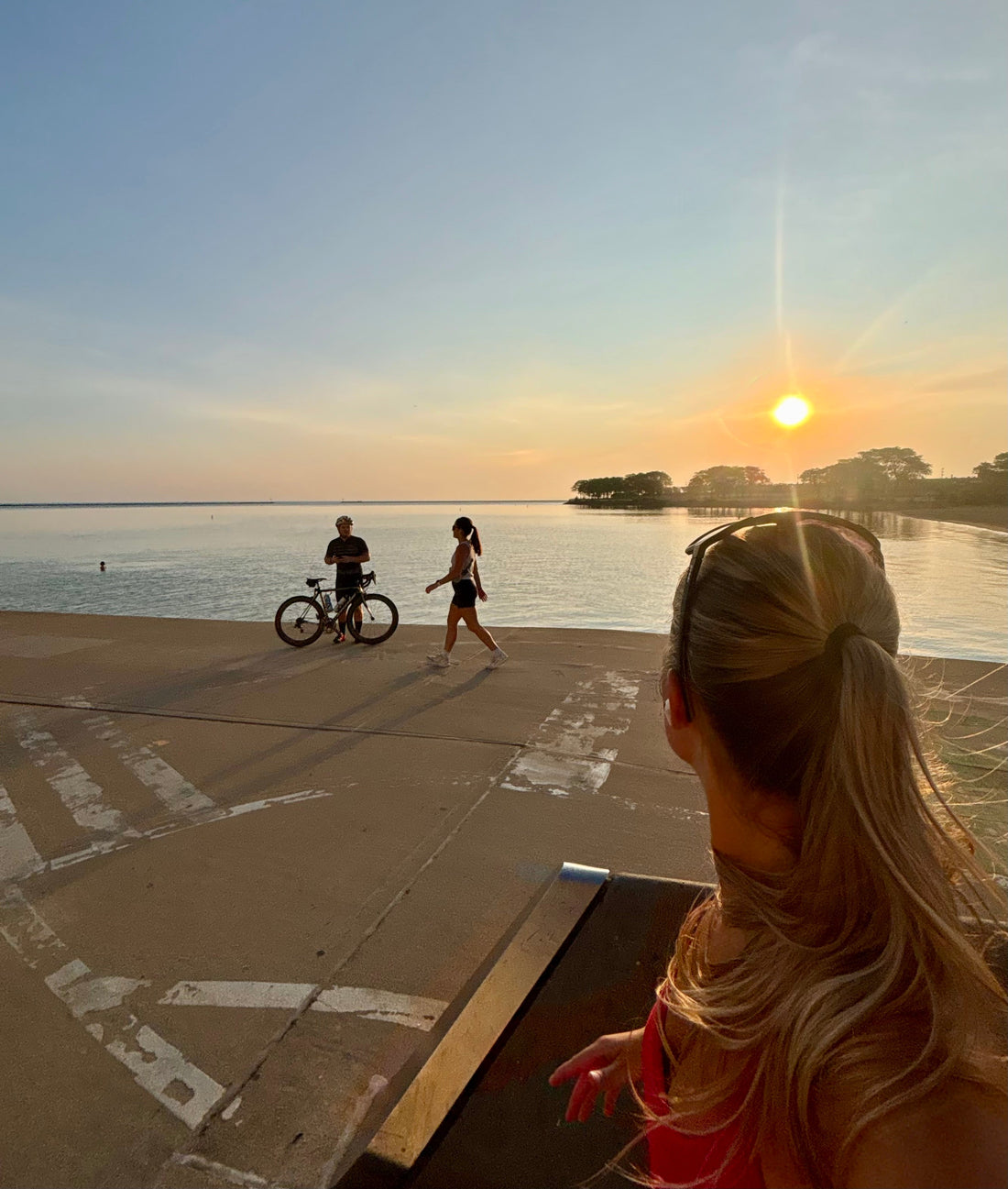
Running in The Summer Heat
Share
Today marks the first official day of summer and the longest day of the year! While the long daylight hours help for fitting in extra miles, the rising temperatures bring an entirely new challenge to marathon training.
Whether you're a seasoned marathoner, training for your first, or just running for fun here’s how to keep your cool (get it?) and stay on track through the hottest months of the year.
What makes the heat so hard anyway?
When temperatures rise, your body has to work overtime to keep you cool. Blood that would normally fuel your muscles gets redirected to your skin for cooling. You tire faster, your heart rate spikes, and dehydration hits harder.
So how might this effect my runs?
-
Dehydration and electrolyte loss
-
Heat exhaustion or heat stroke
-
Slower pace and lower performance
-
Sun exposure and skin damage
But don’t sweat it! (literally). You can train smart and adapt your approach to keep running strong all summer long. Here are some tips that work for me and some I found helpful during my research:
Run Early or Late:
Avoid peak heat hours (10 AM – 4 PM). Aim for early mornings or after sunset when temperatures and UV exposure are lower.
Hydrate:
Start hydrating before your run. Consider carrying water or an electrolyte drink if you're out for more than 45 minutes. Consider salt tablets on long runs to replenish lost sodium (I plan to try this trick out this week!)
Dress Light and Bright:
Wear light-colored, moisture-wicking gear. Avoid cottons. A breathable hat or visor and sunglasses can also be a game changer.
Slow Down, Strategically:
Accept that your pace will likely be slower in the heat. Use effort-based training (heart rate or perceived exertion) rather than strict paces. Don't worry too much about hitting a certain pace on days when the heat is extreme, getting out there and getting time on feet is what matters most.
Take time to get used to the heat:
Acclimation takes time. Give your body 1–2 weeks to adapt. This pays off in race season when cooler temps return.
Refuel & Recover:
Post-run nutrition is even more critical in the heat. Replenish with carbs, protein, and plenty of fluids within 30–60 minutes of finishing. Find a place to cool off after a hot run, whether that's a pool, lake, hose, inside in the AC, or just some shade (my family just invested in an ice bath).
Training in the summer builds mental toughness and physical resilience. When fall race season arrives, all that heat training will pay off!
